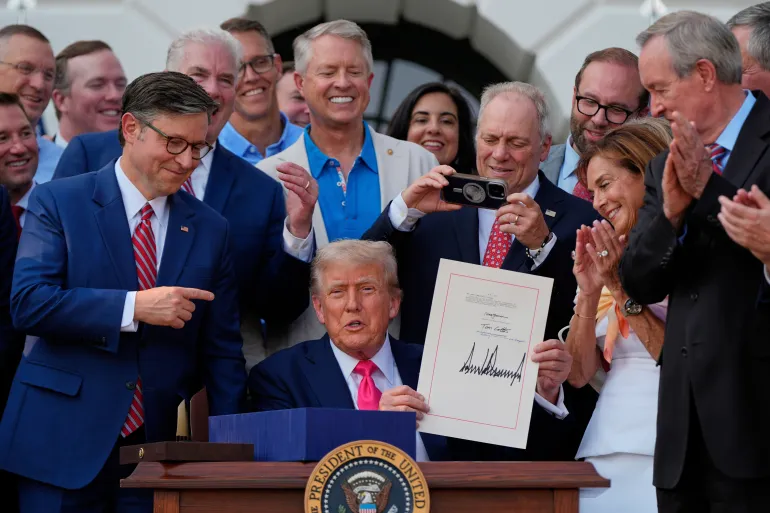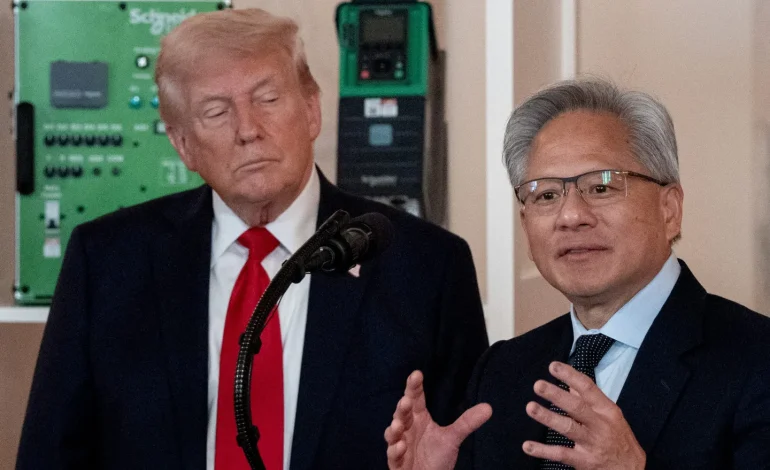President Trump’s latest trade move is either a clever revenue grab or a constitutional faceplant — depending on who you ask.
The White House just cut a deal letting Nvidia and AMD sell certain AI chips to China, reversing earlier export restrictions. In exchange, the US government gets 15% of the revenue from those sales. Treasury Secretary Scott Bessent even called it a “beta test” and hinted other industries could be next.
Sounds like a simple cash-for-access swap… until you remember the US Constitution’s export clause, which flat-out says:
“No Tax or Duty shall be laid on Articles exported from any State.”
Translation: the government isn’t supposed to slap a tax on exports, no matter how creative the branding.
The Supreme Court has killed similar attempts before. In the ’90s, IBM got out of paying a tax on insurance for exported goods, and US Shoe dodged a port fee on exports. Both times, the Court said “nope” to anything resembling an export tax. Whether today’s court would see this 15% “revenue share” the same way is anyone’s guess.
Trump insists the chips in question — Nvidia’s H20 and AMD’s MI308 — aren’t the crown jewels of AI hardware. But they’re still powerful enough that China wants them badly, and security hawks are fuming. Even some of Trump’s own former advisers, like ex–deputy national security adviser Matt Pottinger, call the deal a “strategic misstep” that hands Beijing a win.
China’s President Xi Jinping has been trying for years to loosen US export controls. Biden didn’t give in. Trump just did — and also left the door open to selling downgraded versions of Nvidia’s most powerful chips later. That’s leverage Beijing won’t forget.
Bessent swears this isn’t about national security — it’s about money and a “new model” of industrial policy. Critics call it something closer to “Cosa Nostra capitalism” — the government taking a cut or else.
Whatever you call it, the deal is already a precedent. If it sticks, other industries could find themselves “sharing” revenue with the US Treasury for the privilege of selling abroad. And if it doesn’t stick? Trump may have just picked a constitutional fight that could go all the way to the Supreme Court.
Fortune, the Atlantic, and the New York Times contributed to this report.










The latest news in your social feeds
Subscribe to our social media platforms to stay tuned